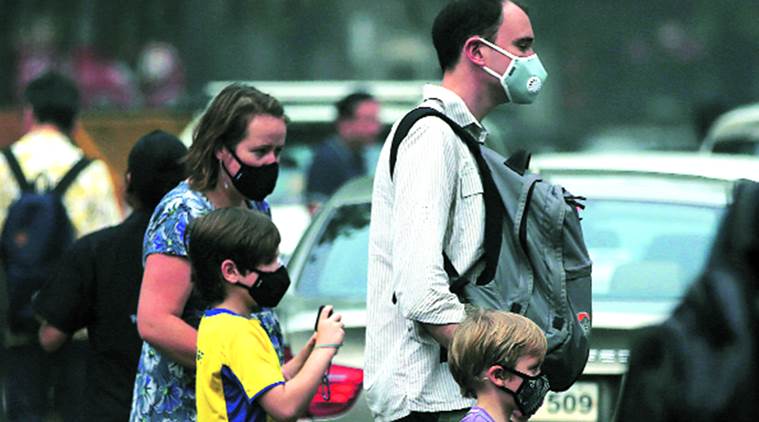Stay updated with the latest - Click here to follow us on Instagram
Delhi pollution: Saturday season’s most polluted day, no respite in sight, say experts
In the absence of an emergency plan, experts say there is no respite in sight, and that Delhi is at the mercy of weather conditions to get rid of pollution.
 When in delhi: Tourists at Khan Market on Saturday. (Source: Express Photo by Tashi Tobgyal)
When in delhi: Tourists at Khan Market on Saturday. (Source: Express Photo by Tashi Tobgyal)
Smog enveloped Delhi yet again on Saturday as the city recorded the worst air quality of this season so far.
Data from the Delhi Pollution Control Committee and the National Air Quality Index shows that pollution levels peaked on Saturday, six days after Diwali. In the absence of an emergency plan, experts say there is no respite in sight, and that Delhi is at the mercy of weather conditions to get rid of pollution. Big cities across the world that have been battling air pollution and have succeeded to a degree have developed emergency action plans, experts said.
Watch
Beijing shuts industrial plants, introduces road rationing measures, issues health advisories and shuts schools to limit exposure to toxic air. Paris introduces vehicular rationing and a ban on outdoor burning. Milan ordered a cut in office central heating and speed limits on roads, along with restricting the number of cars.
“The weather is not letting up and there is no dispersal of pollutants. This is an emergency situation but we have no plan to tackle it like other big cities do. Last year, the only emergency measure that was taken was the odd-even scheme. Other comprehensive plans were not put in place,” said Centre for Science and Environment’s Anumita Roychowdhury.
Schools run by the three municipal corporations in Delhi, along with a handful of private schools, were shut on Saturday.
According to the forecast issued by the System for Air Quality and Weather Forecasting and Research (SAFAR), air will remain “severely polluted” on Sunday as well. A slight improvement is expected in particulate matter levels on Monday and pollution levels could come down to “very poor”.
Weather has been punishing over the past week because of low wind speed, dipping temperatures and high humidity — three factors that aid the accumulation of pollutants.







